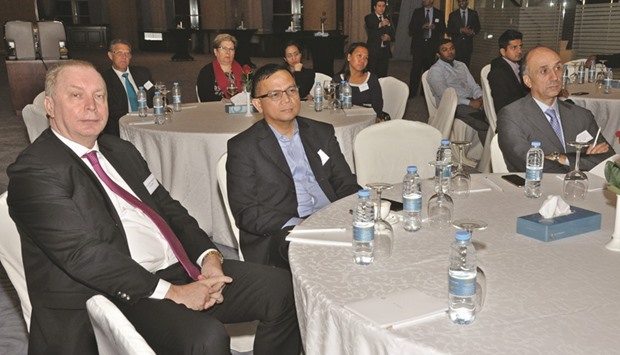Qatar is expected to introduce value added tax (VAT) between January 2018 and January 2019, a seminar organised in Doha by audit firm BDO Qatar was told.
BDO speaker, Ivor Feerick, chair of the BDO International VAT Centre of Excellence said, “Having made presentations to a total number of 1400-1500 clients of BDO local firms in each of the six GCC States over the past 10 days and having fielded about 130 individual questions from the participants, I have no doubt that the proposed introduction of a value added tax (VAT) system into the region will present significant challenges for the local government authorities.”
VAT, although expected for quite some time, will finally be introduced at an expected 5% rate in both the United Arab Emirates and Kuwait effective January 1, 2018, with Bahrain, Oman, Qatar and Saudi Arabia obliged to introduce the tax between then and January 1, 2019.
Although there has been very limited official information released regarding the specifics of how the VAT system to be introduced will operate, Feerick said his expectation was that the GCC Countries would replicate a lot of the features of the European Union VAT System, particularly bearing in mind the similarity between the GCC countries and cooperation of 28 countries in Europe.
“Whereas I expect that certain educational and healthcare services will be purely ‘exempt’ from value added tax with no entitlement to VAT recovery on costs by the related service provider, I expect the provision of basic foodstuff (such as bread, milk, fruits, vegetables and meat) to be ‘zero-rated’ (exempt with credit, thus enabling the suppliers of basic foodstuffs to recover VAT on their operating costs etc.
Increasing the price of most goods and services by about 5% will act as a further disincentive to consumer spending so in the early days following the introduction of the new value added tax system it is likely that retailers may reduce their profit margins and absorb some or all of the VAT costs with a view to maintaining the sales volume required to sustain their businesses, he said.
Although, he said VAT is ultimately a tax on the supply of goods and services to consumers, the charge of value added tax on all supplies to both businesses and consumers will mean that businesses will become tax collectors on governments’ behalf.
“And apart from increasing their administration and IT related costs, they are likely to be exposed to significant interest, penalties and potentially more serious exposures for any non-compliance with the new legislation”, said Feerick.
Gavin Brown, managing partner of BDO in Qatar said, “In the circumstances, it is imperative for them to start planning their VAT strategy without delay and this is the message that I , together with my BDO Partners in the six GCC countries have been sharing with our clients in the region over the past 10 days”.
Business / Eco./Bus. News
Qatar expected to introduce VAT between Jan 2018 and Jan 2019, says BDO Qatar

The BDO Qatar seminar on VAT in progress.
